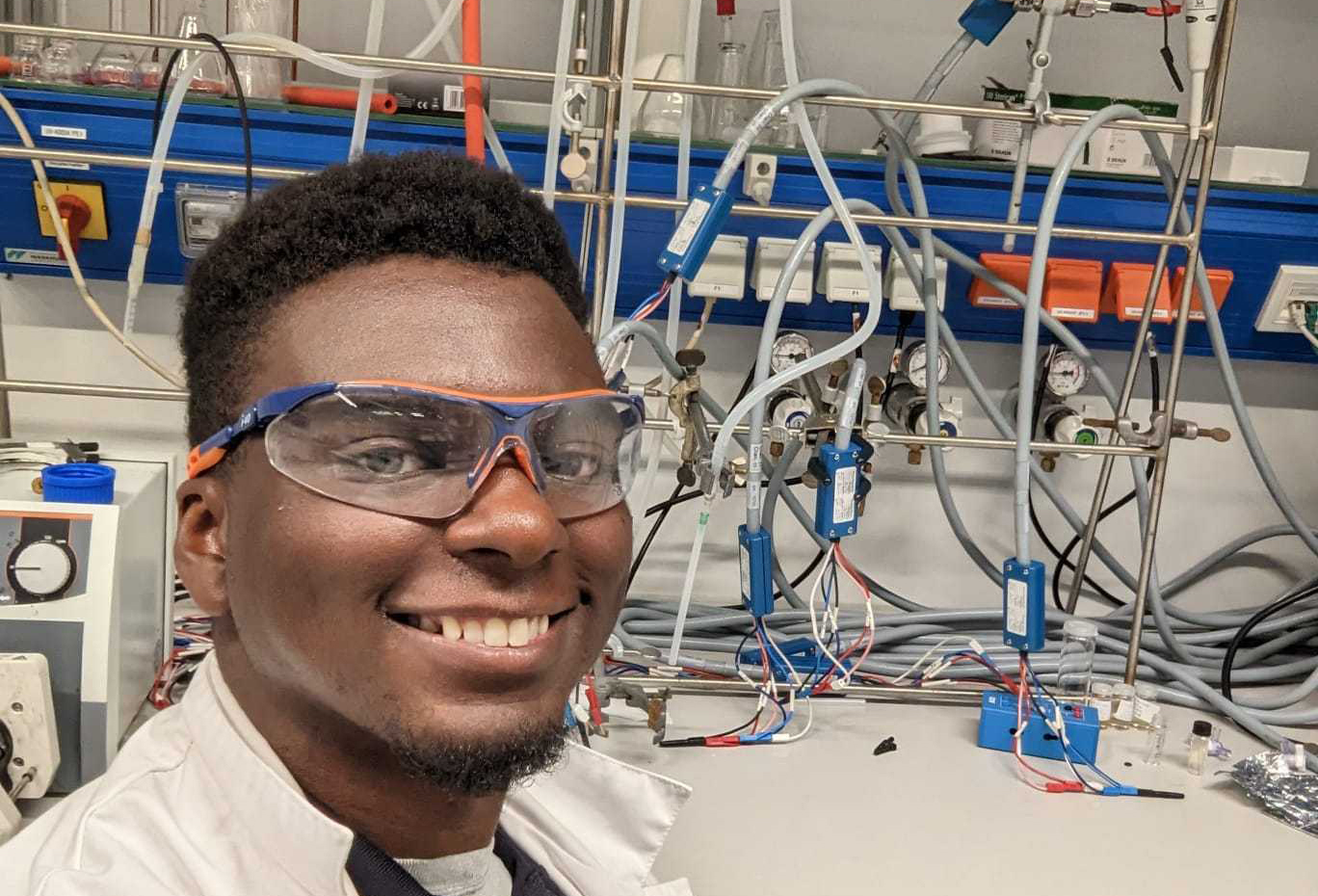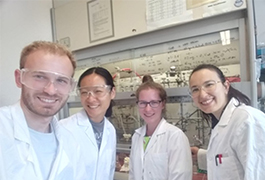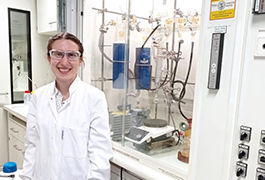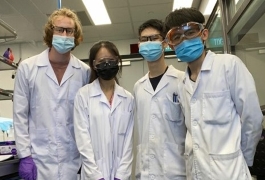Using Strategic Thinking to Maximize Your Two-Year Degree Program
Two-year chemistry programs are more than just stepping stones to your next degree or job. Earning an associate’s degree in chemistry, or equivalent coursework, makes you especially well prepared for the education or job that follows.
ACS Scholar Monét Worsham can attest to the value of a 2-year degree. When she began college, she wanted to earn a bachelor’s degree in chemical and biomolecular engineering from the University of Illinois Urbana-Champaign (UIUC), but at the time, family, health, and financial challenges kept her from enrolling.
Instead Worsham attended Wilbur Wright College, part of the City Colleges of Chicago system. While there, she was careful to make certain that every course counted toward a 4-year degree, and she took full advantage of growth opportunities, including leading her school’s ACS student chapter. Worsham later reapplied to UIUC and was accepted with a full scholarship! Today, Worsham is a logistics supervisor in Solventum’s (formerly 3M Healthcare’s) dental solutions division in Irvine, California.
If fully embraced, 2-year programs and experiential programs can be powerful launchpads for entering a BS degree program or accelerating a career in a wide range of fields, from medicine and pharmacy to academia and industry. Here are six ways to maximize this valuable time.
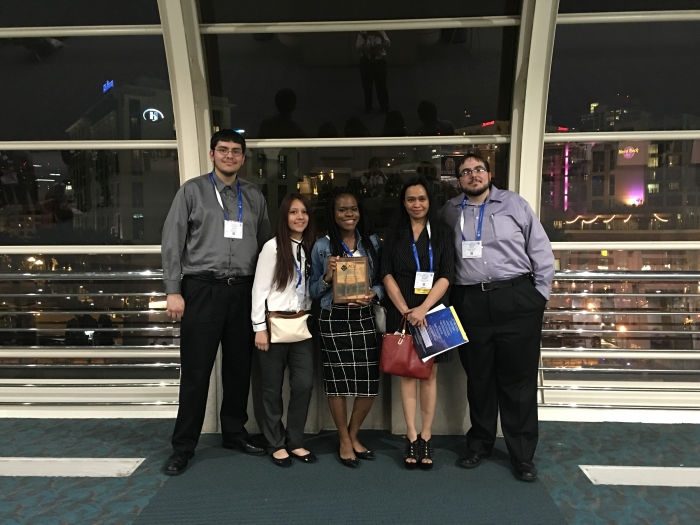
1. Plan your steps in advance
If you’re just beginning your college journey, it helps to know where your path will take you next. Are you planning to transfer to a 4-year institution? Will you instead go directly into the workforce? Are there local companies that hire directly out of your program? Do any of these help pay to further your education?
Knowing the answers to these questions will help you figure out which classes you need so that you don’t waste time and money on coursework that doesn’t get you to your ultimate goal. The advisor at your college should be able to tell you which courses will transfer to whatever 4-year degree program you plan to enroll in, says Doris Espiritu, Dean of Engineering and Professor of Chemistry at Wilbur Wright College. “We call it ‘intentional pathways.’”
Chart Your College Goals with an Academic Advisor
If you’re going into industry, make sure your courses support the specific field you want to enter. Some colleges partner with local employers to offer 2-year programs that teach students the exact skills needed to get hired, says John-David R. Rocha, a program manager at ACS who is working to develop more of these partnerships across the country. At Pasadena City College in California, for example, students can focus on nanotechnology and go directly into careers building semiconductors.
“What really pushes a student is having a goal early,” says Espiritu. “Going without direction leads to burnout. But if students are passionate about what they are doing, no matter how hard their load is, they are excited.”
2. Commit to your studies with strategic moves
The best way to stay focused on your studies is to prioritize them and organize your time. “If it is possible to really focus on the degree program, [putting] the coursework first, then make every effort that you can within your life situation to make that the focus,” says Rocha.
Create a monthly schedule that includes major course and program deadlines. Then make weekly schedules that include your in-class work, a study plan of 2–3 hours of study each day, and whatever other obligations you may have.
It’s okay to shift your obligations as needed. For JaNean Frandsen, a student at Salt Lake Community College (SLCC) in Utah and mother of four, truly committing to her studies meant setting new expectations for herself and her family. She had a meeting with her family to hand off some of the household responsibilities so she could focus on her classes. “I told my husband I can't do dinners every day like I used to,” she says. “My kids know that the house might not be as clean as it once was. And they might actually do their own laundry.”
It may even be possible to turn potential conflicts into academic support. For example, Rocha suggests that whenever possible, working students should consider jobs in their desired field to complement their education. Are there local businesses within the chemical industry looking for part-time help, even if not at the bench? These jobs could help you understand the industry while you are earning money to support your education; some employers even help with tuition. Plus, when you have the required skills for benchwork, you’ll already have a foot in the door.
As with your personal life, you may need to set clear boundaries at work. Kylar Kavanaugh, a student at Ivy Tech Community College in Indiana, works on the events staff for a hotel. “I always told my employers up front that school is my priority and if work is taking away from that priority, then I need to cut hours,” they say. Kavanaugh’s focus is paying off as they complete an associate of science degree in chemistry and begin a bachelor’s degree program at Southern Illinois University this fall with a double major in fermentation and chemistry.
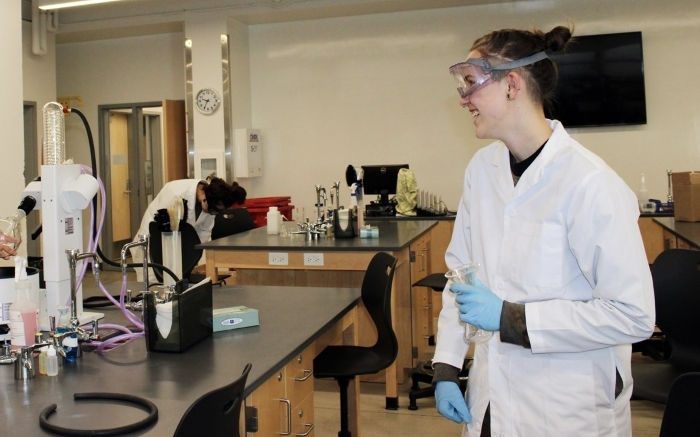
3. Take advantage of research opportunities (wherever they may be)
Doing hands-on research is a powerful way to boost your résumé with bench and data analysis skills. Espiritu invites students to join ongoing research projects in their first semester. They begin by shadowing second-year students and then take on research leadership roles themselves the following year. One team, for example, researched the health of the Chicago River by mining publicly available data collected by the National Aeronautics and Space Administration and other agencies.
This experience makes students that much more competitive for additional research opportunities, says Espiritu. Through an ongoing partnership with Princeton University, 30 City Colleges of Chicago students have earned National Science Foundation Research Experience for Undergraduates (REU) paid positions at Princeton.
At SLCC, students join ongoing research projects through the ACS student chapter. Frandsen is co-leading a team that’s developing a method to synthesize phenytoin, an anticonvulsant medication, in a microwave. “This is a drug that is very helpful and proven safe, but not a lot of companies make it anymore,” she explains. “We want to get the procedures in the hands of compounding pharmacies across the globe.”
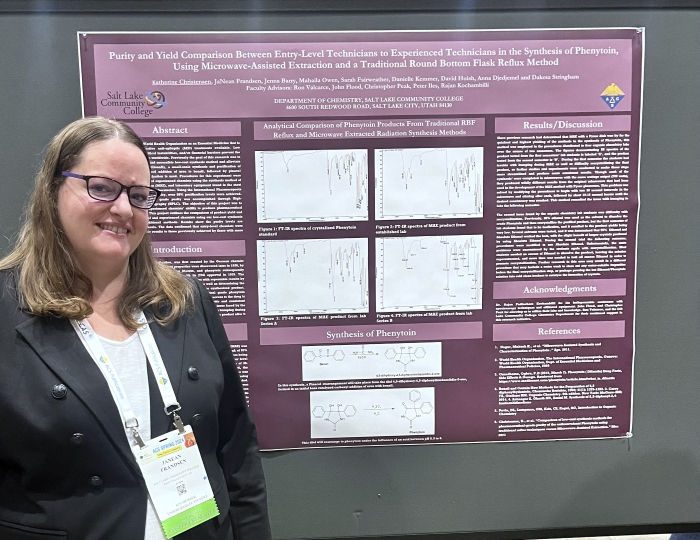
Ultimately, sharing your research at meetings will help you develop science communication skills, as well as build your résumé. In addition to ACS national and regional meetings, look for opportunities with other professional organizations, such as the American Institute of Chemical Engineers (AIChE) , the National Organization for the Professional Advancement of Black Chemists and Chemical Engineers (NOBCChE), and the Society for the Advancement of Chicanos/Hispanics and Native Americans in Science (SACNAS).
If your college doesn’t offer a direct path to research, tell your professors you’re looking for lab experience. They may connect you with colleagues at universities or in local industry, says Rocha. You can also apply for REU programs or summer internships. Check out ACS’s Get Experience database or NSF’s REU Finder to search for many of these opportunities.
4. Get involved
It may sound counterintuitive, but diving into chemistry extracurriculars can actually boost your studies rather than distract from them. Consider joining your school’s ACS student chapter, says SLCC chemistry professor Ron Valcarce. “Having that engagement with other students, that camaraderie, seems to keep students engaged in the classroom as well.”
In addition, an ACS student chapter or other science-based clubs can open up professional development opportunities that will benefit you long after you turn in that final exam. Frandsen, who will graduate with an associate’s degree in biology this spring, is the president of the premedical club within SLCC’s ACS student chapter. The role helped enhance her leadership, organizing, project management, and interpersonal skills. “It has taught me a great deal about recruiting members, serving them, helping to make sure that they are all getting the benefits of the club,” she says.
Worsham credits the leadership skills she developed as ACS student chapter president with helping her land an internship at 3M, which ultimately resulted in a full-time position. On her internship applications, she highlighted her work with ACS, saying, “I don’t have direct experience in a plant or industry, but that doesn’t mean that I don’t have strong leadership, project management, and organizational skills.”
Worsham’s experience with ACS also made her feel at home at her new school when everything else felt new. “I had a community,” she says.
Espiritu’s students actively network with and are mentored by alumni as well as professionals who give seminars. SLCC partners with the University of Utah Medical School to mentor interested SLCC student chapter member and participates in local fundraisers and STEM festivals. Some chapters host résumé-writing events and tours of local labs. All of these experiences make students stand out when they are applying for jobs or continuing on for more education, says Valcarce.
Community and Volunteer Programs
- Join your ACS student chapter or start one at your school
- Join other clubs, like STEM, premedical, nanotechnology, or environmental clubs
- Attend local, regional, or national conferences through ACS or other organizations to connect with professionals
- Start a study group to connect with your peers
5. Ask for help
Is there a concept that just won’t click for you? Or a class that feels totally overwhelming? It’s common to come up against that one topic—or even a whole class—that seems insurmountable. Two-year chemistry programs are often front-loaded with math courses that some students aren’t prepared for, says Rocha.
Get help! “Asking for help is a strength rather than a weakness,” says Espiritu. “Your first line of defense is your faculty. Go to their office hours.”
See What to Do After a Bad Grade
“[Attending office hours] also shows your professors that you care about what you’re learning and you’re putting the effort into the class,” says Kavanaugh.
You could also visit your school’s math or STEM center for free tutoring or ask your classmates to study together. This is where all that time you spent developing connections with your school community really pays off.
Don’t panic if you get a low grade. “You don’t have to get an A in every course,” says Rocha. Employers and future degree programs do consider grades, but if you fully immerse yourself in the chemistry community, you’ll have other great attributes to showcase too. “A faculty member or mentor who can speak on your behalf can also make a big impact on hiring and enrollment decisions,” says Rocha.
And don’t be afraid to reach out to faculty for help with the logistics of school too. Kavanaugh credits one of her professors with helping her get permission to take a course elsewhere when it wasn’t offered at her home campus that semester. He also nominated her for Outstanding Student for the School of Arts, Sciences and Education, which she was awarded this spring. “So those relationships with professors really matter,” says Kavanaugh.
6. Take care of yourself
Completing any degree program is challenging, especially if you have competing priorities or if life throws you some curveballs. Frandsen reserves one day each week to work on quilting projects. “I don't think I could have gotten through school as well as I have without knowing that there was something else to look forward to,” she says. “That really helped my brain to rest and absorb better the things that I was learning.”
No matter how committed you are, remember to prioritize your health as much as you prioritize your schoolwork. Eat well, exercise, get a good night’s sleep, make time for friends and family. Even if for a brief time, do something each day to take your mind off of your classes.
Remember too that you are not alone. You are part of a community of chemists who are there to support you, says Espiritu.
“I just hope more people get involved and don't hide in their little corners and think that they're going to be okay,” says Frandsen. “It's really hard to do that. It's possible, but it's not an easy thing. Asking for help and getting involved is the best way to get the most out of a 2-year program.”

